Lack of Protection for Victims of Sexual Violence on Campuses
Cases of sexual violence remain high on campuses.
maaf email atau password anda salah
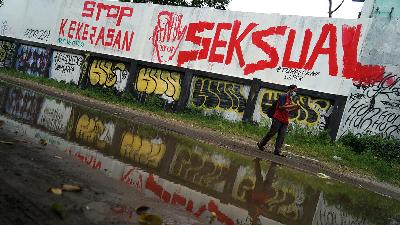
Cases of sexual violence remain high on campuses.
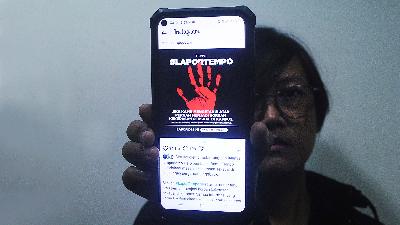
As a form of public participation, Tempo provides Lapor Tempo to accommodate reports from victims of sexual violence on campuses.

The Sexual Violence Prevention and Handling Task Force often encounters obstacles when dealing with sexual violence cases on campus. Victims feel they do not receive justice.

The Attorney General’s Office responds to the report on the restorative justice for sexual abuse victims.

Indonesia’s Miss Universe finalists reported sexual harassment to the police. They also suffered from body shaming.
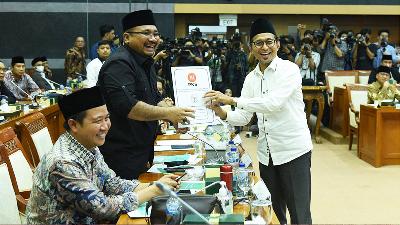
Three members of the DPR are implicated in sexual violence cases. The handling of some cases has come to a halt due to the lack of evidence.
Warning: The following article has sexual violence and domestic violence content.

Three members of the House of Representatives are reported for committing sexual assaults. The legal process does not take the side of the victim.

Persecution at Gunadarma University has exposed the way campuses deal with sexual violence. The police have also acted recklessly.

How does Tourism and Creative Economy Minister Sandiaga Uno address foreign tourists’ concerns regarding the new law that criminalizes sex outside marriage and cohabitation?
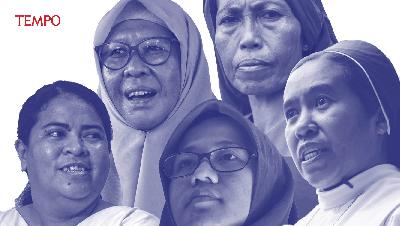
Five women who tenaciously supported victims of sexual violence have been chosen as Tempo’s People of the Year 2022. They fought hard to demand justice for these victims.

How the cooperatives ministry is handling a case of sexual violence reflects on how low the comprehension levels are of state apparatus regarding gender justice. It is possible many similar cases have never been revealed.
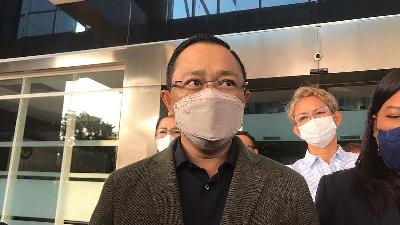
Putri Candrawathi’s attorney claims his client insists that Brig. Yosua had perpetrated sexual assault at Ferdy Sambo’s house in Magelang, Central Java.

The ministry of education must immediately punish any lecturer guilty of sexual abuse at Riau University. The priority must be the protection of victims.
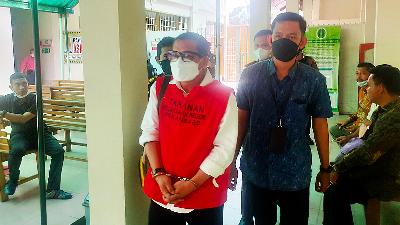
Victims of sexual violence often lose in court. They face an unfavorable perspective held by many working in law enforcement.

Letters from readers: from sexual abuses at IAIN Ambon to the concept of the sharing economy.

The DPR has once again delayed deliberations of the Sexual Violence Crimes Bill. It does not seem to care about the increasing number of women falling victims.

Victims of sexual violence have the right to restitution in damages. Its mechanism is unclear.

Sexual violence on campus, in pondok pesantren (Islamic boarding school) and corruption prevention in educational institutions.

Herry Wirawan is suspected of committing sexual violence and exploiting more than a dozen female students, some of whom have given birth. There are suspicions his family was involved.

Reported sexual violence on campuses is just the tip of the iceberg. The regulation from the ministry of education, culture, research and technology must be supported in order to prevent it.
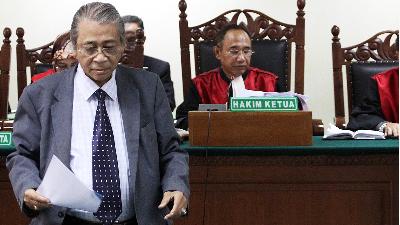
Two University of Indonesia students claim to have been victims to sexual harassment perpetrated by a professor of political science. Students are now coming forward with cases of sexual assault on other campuses.
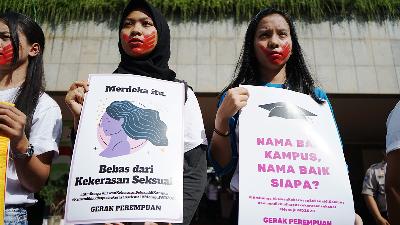
Several universities have disturbing track records of sexual violence. Some reported professors are still teaching.
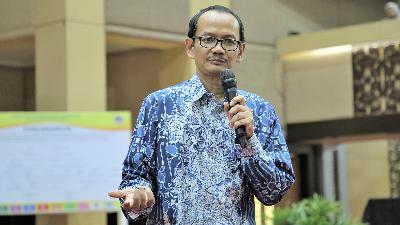
Education, Culture, Research, and Technology Minister Nadiem Makarim issued a regulation to prevent sexual violence on campuses. It is rejected by religious organizations.


Victims of sexual violence after meeting offenders on the Internet find it difficult to crawl out of depression. The state of their mental health declines even further upon realizing cases cannot be resolved through legal channels.


Online sexual violence does not only target adult women, but also adolescents. Despite the rising number of cases each year, there is still scant protection for victims. Perpetrators sell sexual extortion videos to pornography platforms on the Internet, reaping hundreds of millions of rupiah.

The person allegedly responsible for a sexual offense in Jombang intimidated the victim and her supporters. A sexual violence eradication law is needed.
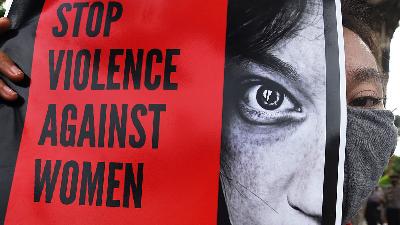
THE Sexual Violence Eradication Bill returned to the national legislation limelight on 23 March. This is the fruit of the labor of women’s rights activists who have been tireless in realizing legislation to protect women from sexual violence. But the struggle is far from over. Since it was first proposed by the National Commission on Violence against Women in 2012, the draft regulation has been in limbo. After entering the national legislation program in 2016, the bill remained unpassed. Women’s rights activists have gone through a winding road to convince the House of Representatives and the government so that the draft regulation can be immediately discussed and passed.

I have followed the coverage of Tempo about the case of sexual abuse occurring at Herkulanus Parish in Depok, West Java. I feel grateful and salute the courage of Tempo to publish this fairly sensitive article.

A State Islamic University of Yogyakarta student in his dissertation concluded, extra-marital sexual relations do not violate Islamic law. In the end he had to revise his position for being too controversial.

The anti-sexual violence bill must be passed immediately. It is time law enforcement took the side of the victim.
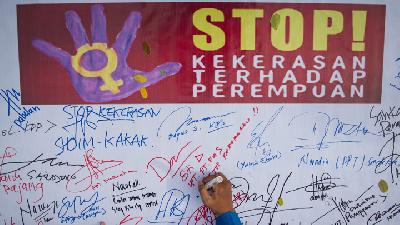
A civil society coalition is urging the House of Representatives (DPR) to quickly pass a Bill on the Elimination of Sexual Violence.
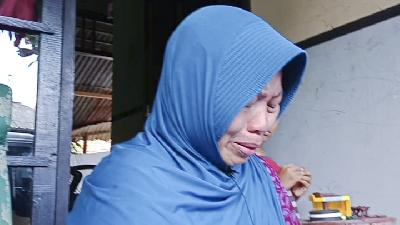
The Supreme Court leveled a guilty verdict against a teacher who was a victim of sexual harassment in Mataram. Many opposed this verdict.

THE furor over the issue of the lesbian, gay, bisexual and transgender (LGBT) community suddenly became a discussion at the National Human Rights Commission (Komnas HAM).

TO fight prostitution, Sweden imposes heavy punishments for those who pay for sex. The country's Sex Purchase Law, enacted on January 1, 1999, threatens such persons with fines of up to 25,000 krona (about Rp39 million), lengthy community service, and one-year prison terms.

Researchers from the National Atomic Energy Agency have engineered a hormone that can change the sex of both ornamental and food fish. Aside from its success rate of up to 94 percent, fish sex change is also affordable.

The fuss over the sex video films indicates that people here like to be voyeurs. There must be harsh penalties for the distributors.

The police declare Anand Krishna a suspect for alleged sexual harassment. Anand’s attorney claims the evidence is weak.

The Right of Reply of Korindo Group

Askrindo has been undermined by alleged embezzlement totaling up to Rp200 billion. The payment of claims was overstated so the directors could benefit.
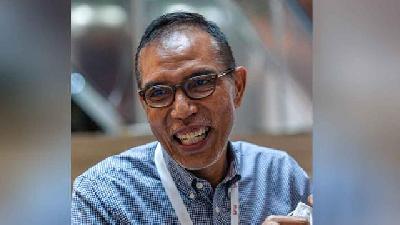
Investigation by an audit committee formed by Askrindo's board of commissioners of the company’s finance in 2019 found indications that the commission paid to Askrindo Mitra Utama (AMU), a subsidiary which is also an insurance sales agent, was a cover for bribes to the company board of directors. Robertus Bilitea, Chief Executive Officer of Indonesia Financial Group (IFG), a state-owned insurance holding company, answered Tempo’s questions regarding the alleged corruption within one of IFG’s subsidiaries.

The phrase "the desert of the real" conveys that ‘the real’ is the destroyed world, gloomy, fantastical, inexplicable through language, especially when viewed from the ordered world. In Indonesia, we are actually in that ‘desert’: with incessant floods, landslides and earthquakes.

AFTER reading and studying Tempo of the November 3-9, 2020 edition, as General Chairman of the Indonesian Fresh Food and Vegetables Exporter-Importer Association (Aseibssindo) I herewith convey the following matters as a response and an exercise of our right of reply.

Indonesia finished whole-genome sequencing of the SARS-CoV-2 virus circulating in the country. Virus samples from Indonesian patients indicate they are part of the dominant group globally.

Richard Joost Lino, the current CEO of state-owned Pelindo II, is known for his straight talk and penchant for betting. This is evident in how he faces challenges and opposition, whether from his own employees, his colleagues or even government ministers. Recently, Lino was reported to the police by Indonesian Democratic Party of Struggle (PDI-P) politician, Masinton Pasaribu, who is also a former Corruption Eradication Commission (KPK) official, for allegedly giving a gratuity to State-Owned Enterprises Minister Rini Soemarno.
The public is unlikely to forget how Lino stood up against Coordinating Minister for Maritime Affairs and Natural Resources Rizal Ramli, also known for his sometimes injudicious language, over the damage at the port area caused by a project overseas by Rizal, as well as charges that Lino used State funds to place ads in a number of major media organizations.

Transportation Minister Ignasius Jonan has asked that the decision of Richard Joost Lino, CEO of state-owned shipping company Pelindo II, to extend the operations contract with Hutchinson at the Jakarta International Container Terminal, (JICT) be ignored. The criteria for the contract extension, according to the law on shipping, contradicts it. Today, Jonan admits he is in the process of drafting a legal action against Lino's desperate move. "If we find any violation, the amendment to the contract will be cancelled," Jonan told Tempo reporter, Khairul Anam, who met him at his office on July 7.

Lapindo Brantas is about to restart producing gas in Sidoarjo. It faces strict requirements over concerns of a recurring Porong incident.

His return to Pelindo II was greeted by protesting employees. He is convinced that in 10 years time, Tanjung Priok will be double the size of Hamburg or Rotterdam ports.

A legal challenge on the use of state funds to compensate victims of the Lapindo case lost at the Constitutional Court.

As Tempo Inti Media celebrates its 40th anniversary, Tempo English features prominently alongside the company’s other media products, to provide insight and information to the growing number of expatriates in Indonesia and ‘Indophiles’ in the ASEAN region and beyond.

A new book takes a fresh look at the 1965-66 mass killings in Indonesia.

Something is not right with the police order to stop the Lapindo case investigation. Will this mean the end of their legal efforts?

On Friday two weeks ago, the gush of underground mud in Porong, Sidoarjo, some 200 meters from the Banjar Panji I gas exploration well owned by PT Lapindo Brantas, was exactly three years old. Fifty thousand people in 12 villages were rendered homeless by the disaster. This could be only the beginning of the tragedy. In March, a ring dam surrounding the source of mud collapsed as the earth beneath subsided. A daily flow of 100,000 cubic meters of mud is now directly impacting the external dam as the only dividing wall between 64 million cubic meters of mud and settlements. If this 3-meter-wide fortress gives way, a calamity like that in Situ Gintung, Tangerang, may recur.

The Bakrie Group is willing to pay the long-overdue payment of the outstanding 80 percent compensation for victims of the Lapindo mudflow disaster. However, this does not mean that the compensation issue is settled. Thousands of Sidoarjo residents are still rejecting this payment scheme.

Police deferred to send the Lapindo case dossier to court, even though they still believe the mudflows were caused by human error.

Lapindo considers Medco’s letter about installing pipe casing to be misleading. The credibility of the company belonging to the Panigoro family is at risk.

Nine months after the Lapindo mudflow inundated the plains of Sidoarjo, making 10,000 people homeless, the National Mudflow Management Team still faces a mountain of tasks. But why must the government bear the Rp7.6 trillion relocation costs?

The directors and commissioners, also the shareholders can be sued in the Lapindo mudflow case.

Lapindo is officially separated from Energi Mega Persada. It wont be easy for Bakrie to regain lost trust.

Lapindo is officially separated from Energi Mega Persada. It wont be easy for Bakrie to regain lost trust.

EVERY day, 75,000 new web logs or blogs are created in cyberspace. At least 1 million pieces of information emanate from these blogs every day. Of course, not all of them contain important news; there is a virtual flood of trivial tales.
But a new wave is beginning to appear: the bloggers are beginning to write like journalists. They take part in providing the latest information on all sorts of eventsin addition to making special analyses. The tsunami that swept across the south shores of the Island of Java, a month ago, for instance, had filled the blogosphere just a few moments after it happened, and even before television could report on it. Even before this, CNN had no problem quoting a number of postings from Iraqi bloggers when America began its invasion.
Undeniably, the blogs have taken on a new role: opening new windows of information for the citizens of the world.

From Port Klang, Malaysia, cheap sugar flows into Indonesia through ports of entry in Sumatra.

Interest in studying Indonesian in Australia has regained momentum following innovative and creative teaching techniques.

Indosat, Satelindo, and IM3 are to merge. Is it true this move will be profitable?

Disobedience has a price. The cost of civility is enormous.

The investigation into the Communication and Digital Affairs Ministry employees backing online gambling is expanded to include many people. Ill-gotten gains from a political operation.

The presence of Hashim Djojohadikusumo at COP29 in Azerbaijan was considered as bearing a conflict of interests. He was promoting the business of Arsari Group.
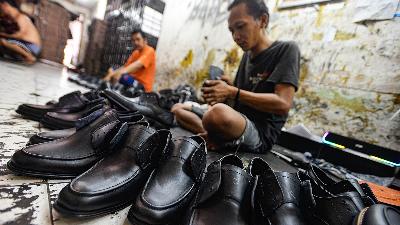
The disbursement of People’s Business Credit faces numerous challenges. Farmers and small business owners are vulnerable to loan sharks and middlemen.
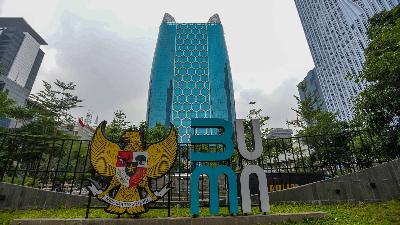
The plan for a super-holding for state-owned enterprises dates back to the New Order era. The SOEs Ministry will be replaced by a giant corporation.
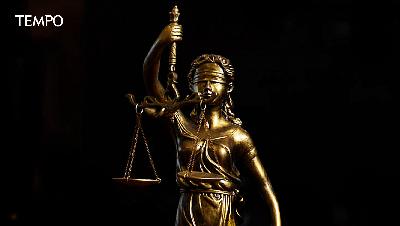
With the Supreme Court’s judicial mafia, when one branch is lopped off, another 10 grow in its place. It needs to be comprehensively cleaned up.

The Supreme Court dismissed three judges suspected of accepting bribes in the Ronald Tannur case. This adversely impacts efforts to improve the judiciary.

Judicial Commission Chair Amzulian Rifai on the corruption in judicial institution involving judges.

Driven by corporate demand, helicopter business opportunities continue to grow. Operators are increasingly expanding their fleets.

There is an increasingly real threat to Indonesia’s biodiversity. It cannot be overcome through empty slogans at international forums.
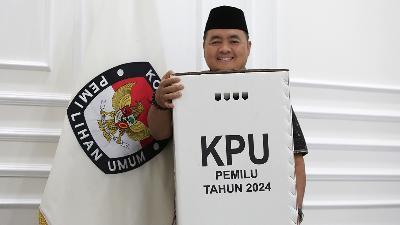
KPU Chair Mochammad Afifuddin on turbulence within his institution following the dismissal of Hasyim Asy’ari, and the Constitutional Court’s decision on the regional head elections.
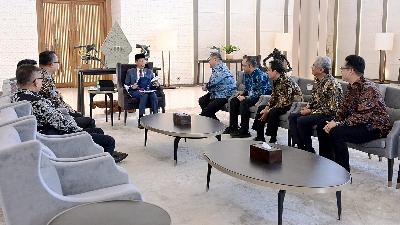
Various parties from the National Police Chief to the State Palace are accused of interfering in the KPK leadership candidates selection process. The candidates are divided into four clusters.
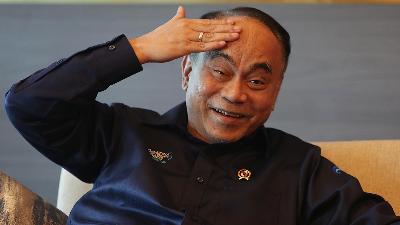
Tempo’s interview with Minister of Communication and Informatics Budi Arie Setiadi about Jokowi’s campaign before the end of his tenure.

As President Jokowi's term neared its end, instructions were given to promote the government's achievements, and billions of rupiah in contracts were offered to the media.
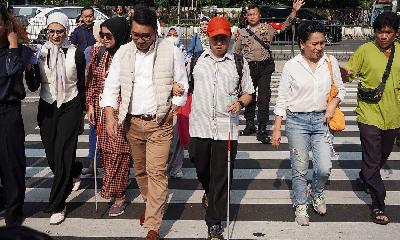
Jakarta governor and deputy governor candidates promise improvements in inclusive public transportation.
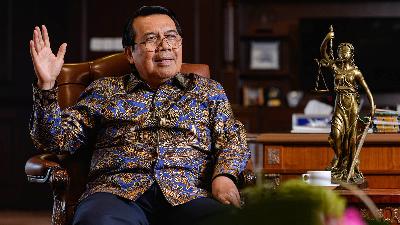
Supreme Court Chief Justice Muhammad Syarifuddin uses artificial intelligence to handle cases. Case brokers continue to be a threat.
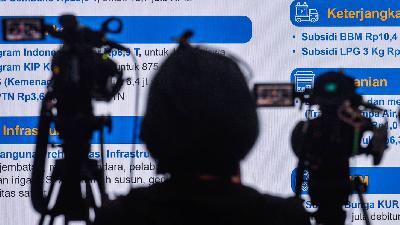
Media companies are experiencing upheaval due to the rapid changes in the business landscape. The industry is moving towards a new equilibrium.

Using a variety of pretexts, the political parties replace elected legislative candidates. This is a betrayal of the people’s choice.
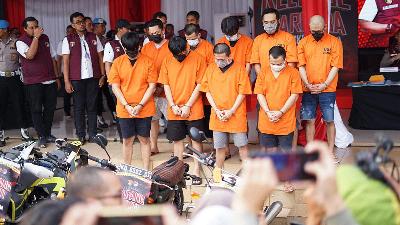
Hendra Sabarudin’s drug network distributed methamphetamine from Tarakan prison starting in 2017, allegedly aided by police and prison guards.

The government plans to dredge 17.6 billion cubic meters of sea sand and sediment, altering the landscape and destroying marine life.
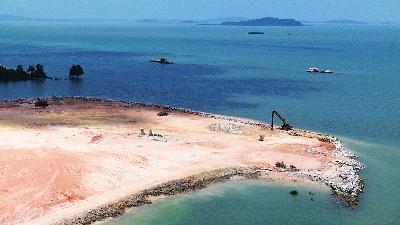
The government designated a number of areas as zones for cleaning sediment and sea sand.

Anindya Bakrie ousts Arsjad Rasjid from the position of General Chair of the Indonesian Chamber of Commerce and Industry (Kadin). The Palace’s support shifted.
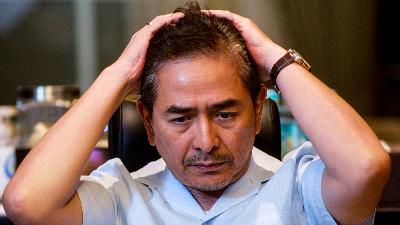
Anindya Bakrie ousted Arsjad Rasjid as the Chair of the Indonesian Chamber of Commerce and Industry (Kadin). The organization is becoming like a political party and enjoys large funds coming in from overseas.

Gubernatorial candidates are trying to win over the votes of Anies Baswedan supporters in the Jakarta regional election. Jokowi reportedly shifted his support.

Pramono Anung and Ridwan Kamil shed light on the dynamics surrounding their appointments as Jakarta gubernatorial candidates.
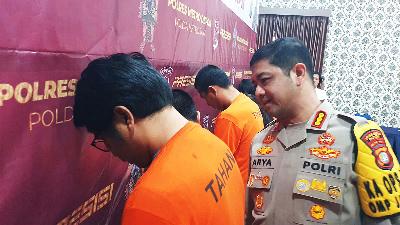
Police uncover baby trafficking syndicate operating in Java-Bali since 2023. Five babies were already sold.
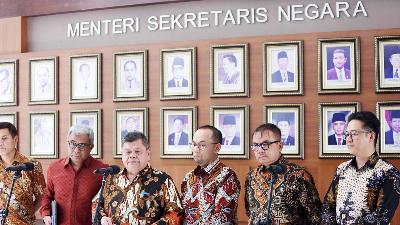
News summary on the conflict of interest of KPK leadership candidates and 44 ministries in Prabowo’s government.
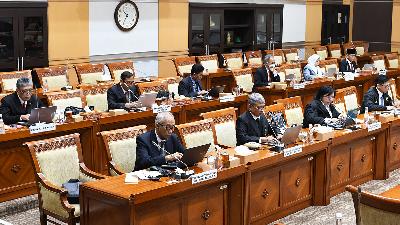
Commission III of the House of Representatives rejected all the Supreme Court judge candidates proposed by the Judicial Commission. The rejection allegedly was due to their favored candidate failed to pass.
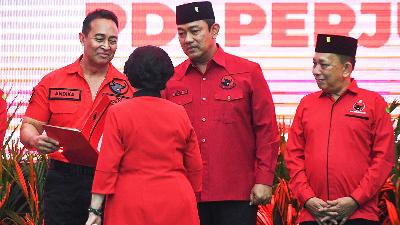
The Indonesian Democratic Party of Struggle (PDIP) strives to counter candidates supported by the Palace. It is an early projection for the 2029 General Elections.
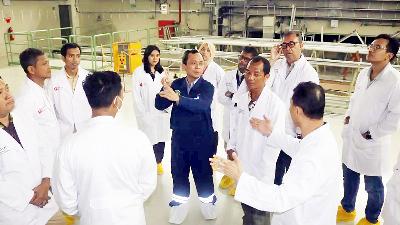
BRIN is designing the Peluit-40 nuclear reactor to replace diesel power plants, claiming it to be safer.
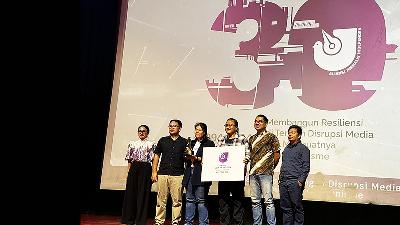
The Bocor Alus Politik podcast receives the Udin Award that we dedicate to our viewers and readers.

An exclusive Tempo interview with Anies Baswedan regarding his chances to run in the Jakarta regional head election.

Jokowi and Prabowo’s coalition are maneuvering to thwart Anies Baswedan’s candidacy in the Jakarta regional head election. Cabinet posts are being offered as inducements.

Tommy Hermawan Lo’s name emerges following the mention of Mr. T in online gambling that involves human trafficking case. He is a director at a casino management company.
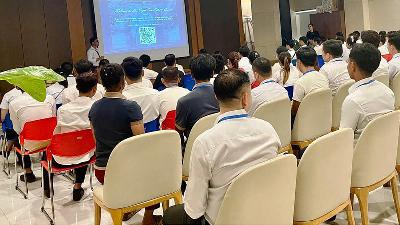
Victims of human trafficking for online gambling and scamming in Cambodia claimed of being forced to work 12-hour shifts and being beaten. Recruitment is still ongoing.
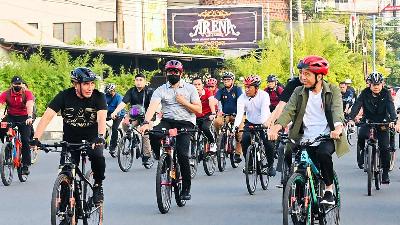
The battle in the presidential election is set to continue in regional head elections. The PDI-P is determined to challenge President Joko Widodo’s candidates.
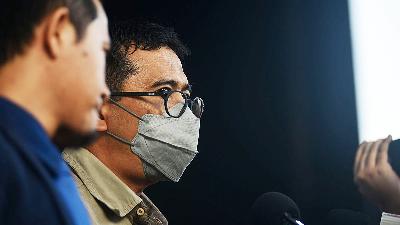
Personal protective equipment corruption suspect, Budi Sylvana, denied inflicting up to Rp300 billion of losses to the state. He revealed the roles of other officials in the case.
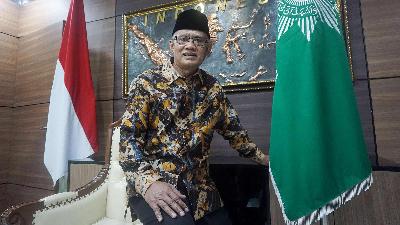
Muhammadiyah follows Nahdlatul Ulama’s step to accept mining concession offer from the government. Muhammadiyah General Chair Haedar Nashir explains about it.
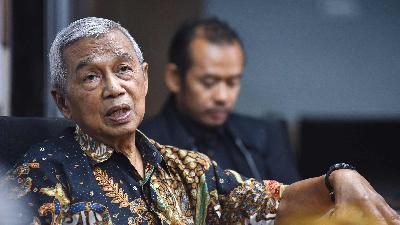
Muhammadiyah accepts the government’s mining concession offer. Many members are against it. Busyro Muqoddas, Chair of Muhammadiyah’s Law and Human Rights Council explains.

Muhammadiyah cadres and administrators are divided in their response to the mining concession. There are whispers from the government and the entrepreneurs.

Retno Marsudi dismissed the idea that the government is merely meddling foreign affairs. She emphasized that Indonesia is a trusted partner on the international stage.
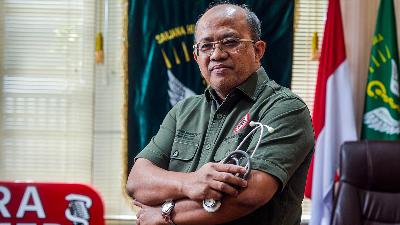
Chair of IDI, Mohammad Adib Khumaidi, discusses the polemic over the plan to allow foreign doctors to practice in Indonesia. He emphasizes stringent regulations are necessary.

Communication and Informatics Minister Budi Arie explains the cyberattack on the Temporary National Data Center. He dismisses allegations of negligence.

Infinite Earth responds regarding the revocation of Rimba Raya Conservation’s ecosystem restoration permit.

There will be a wave of layoffs at Tokopedia as a result of inefficient practices. This is the result of government policy rife with conflicts of interest.
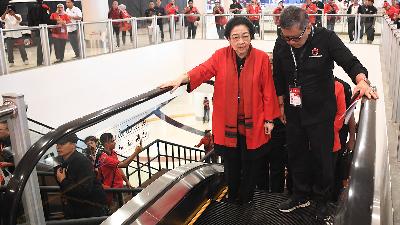
The PDI-P is preparing to replace Hasto Kristiyanto after he was questioned by the KPK in the Harun Masiku case. They are wary of the Palace’s interference.

The founders of GoTo and Tokopedia sold their shares. New investors now have control of ownership.

Tokopedia made significant cuts in its workforce following its business consolidation with TikTok. A consequence of inefficient business operation.

Muhammadiyah’s business networks cover various sectors, from education to financial services. It seeks to create a closed economic ecosystem.

Muhammadiyah withdrew trillions of rupiah from Bank Syariah Indonesia. It was the accumulation of various problems, from operational matters to appointment of commissioners.
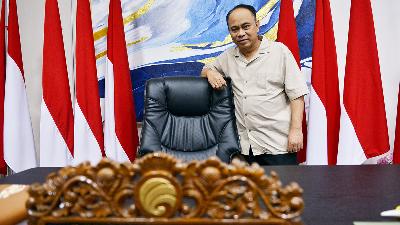
Communication and Informatics Minister Budi Arie Setiadi talks about the polemic over the planned revision of the Broadcasting Law and the Starlink Internet service.

Narendra Modi is likely to serve his third term as the Prime Minister of India. His campaigns are based on populism and religion.
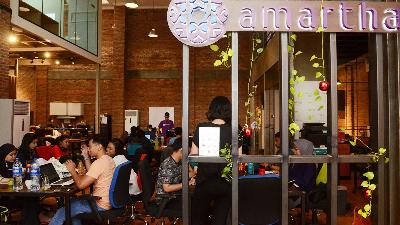
The fintech lending business is increasingly losing steam. Returns continue to decline while fund owners are opting for other investment portfolios.

Tourism and Creative Economy Minister Sandiaga Salahuddin Uno assures that the tourism fee will not be imposed on plane tickets.
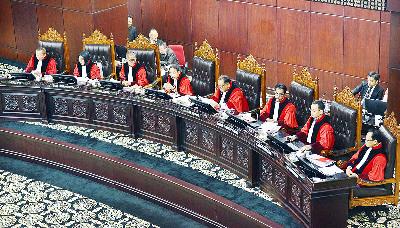
The Constitutional Court rejected lawsuits disputing the results of the 2024 presidential election. The option of disqualifying Gibran was discussed in a meeting of the judges.
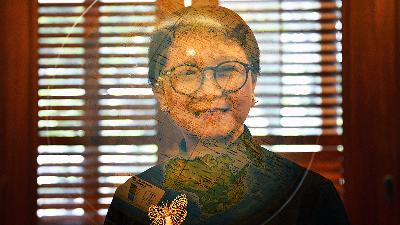
Foreign Affairs Minister Retno Marsudi explains the Gaza war and the Iran-Israel conflict with its impact on Indonesia’s economy.
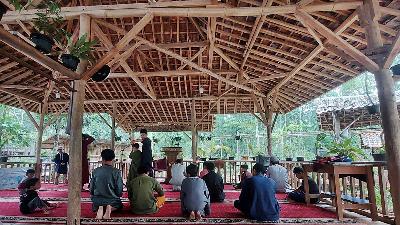
Islamic boarding schools (pesantren) cannot be closed even if they do not have a license from the government. There is no protection from the Ministry of Religious Affairs if legal problems arise.
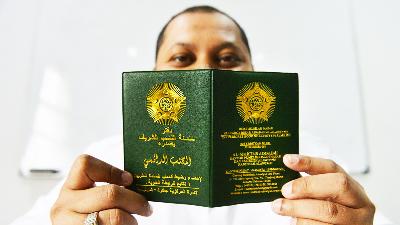
The Rabithah Alawiyah organization is in charge of recording and preserving the line of descent of the Alawiyyin in Indonesia. Seven books from Yemen serve as their guide.

Several companies are applying for permits to utilize sediment, including sea sand. Large corporations use landfills for land reclamation areas.

Indigenous people are taking legal action against the President and the DPR for delaying deliberations of a bill. It has taken second place to the interests of investors.
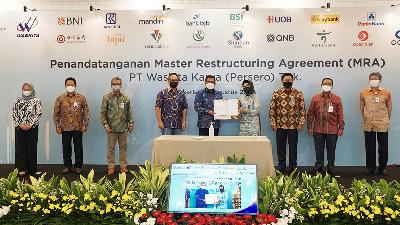
State banks stop distributing loans to state construction companies. Government assignment projects are burdening banks.
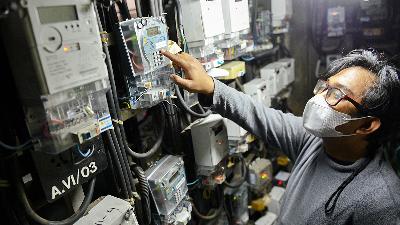
The government opens the option of switching energy subsidies for the free lunch program. This threatens poor households.

The government issues a regulation to develop the game industry. There will be a special funding agency.
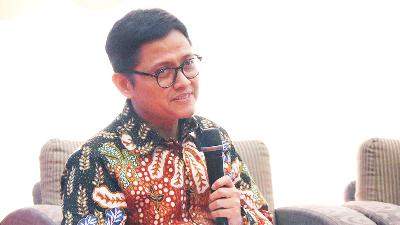
Discussions of the Asset Recovery Draft Law is stagnating in the DPR. It is key to preventing money laundering.

TikTok Shop’s acquisition of Tokopedia changes the Indonesian business map. It is not clear how small and medium enterprises will be protected.
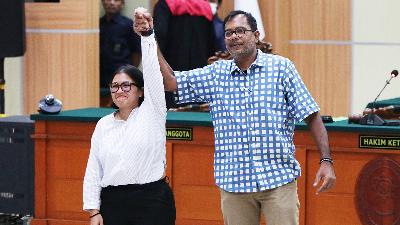
The prosecutor persists in filing a cassation against the acquittal of Haris Azhar and Fatia Maulidiyanti. It is a threat to the freedom of expression.

GoTo CEO Patrick Waluyo reveals the story behind the selling of Tokopedia shares to TikTok. How much profit did GoTo get?

The integration of TikTok Shop with Tokopedia will reinforce GoTo’s business. Indonesia’s e-commerce competition landscape is changing.

The presidential and vice-presidential candidates are relying entirely on gimmicks to exploit the emotions of the people. This moves the campaign away from substantive discussions.

Do the presidential candidates succeed in attracting young voters with social media gimmicks?
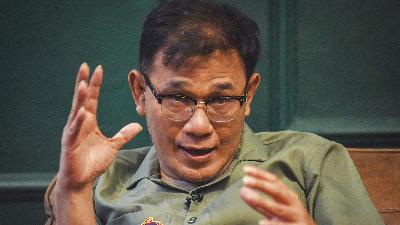
Budiman Sudjatmiko persuades other activists to support Prabowo Subianto. He claims he is not motivated by money.
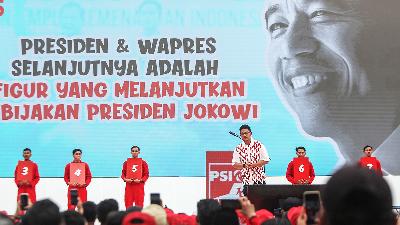
How does the Indonesian Solidarity Party get its funding? Is the aid from conglomerate bosses like Djarum’s owner true?

Presidential Chief of Staff Moeldoko is writing regarding his alleged interference in electric vehicle policy over Wuling’s SNI certification.

Post-Firli Bahuri, the Corruption Eradication Commission (KPK) is still walking backward toward its grave. A radical reform is needed.

The presidential candidates’ campaign teams are an illustration of the type of government they would form if elected. Businesspeople have a central role.
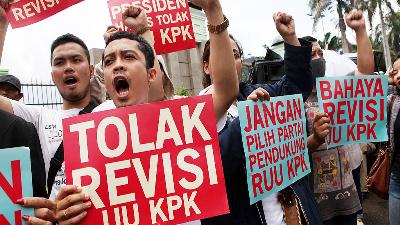
The Corruption Eradication Commission is no longer independent ever since it became part of the executive body. The fruit of the revised KPK Law.
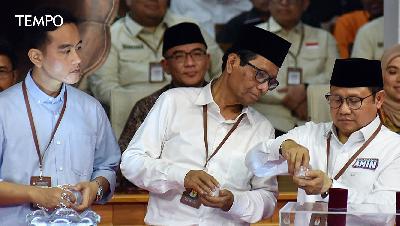
In Indonesia, presidential candidate debates are planned as bogus performances. There is no in-depth discussion of the issues.

Yet again, a member of the Supreme Audit Agency is involved in corruption. The system for selecting these state auditors is very poor.
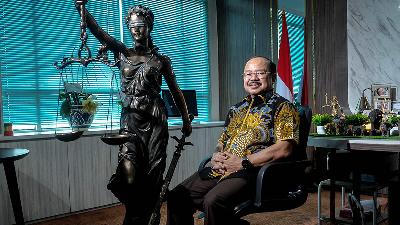
Judicial Commission Chairman Amzulian Rifai explains the boundaries of his authority in dealing with judges, and the Judicial Commission Bill.
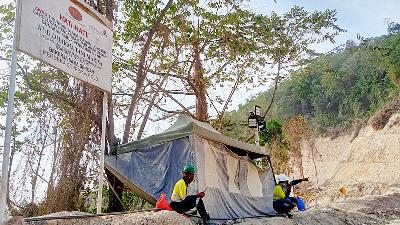
Sandiaga Uno and Garibaldi Thohir’s company is in conflict with local miners. The amount of compensation is considered inadequate.

Having no democratic legitimacy, Gibran Rakabuming Raka must withdraw his candidacy for the vice-presidency.

Tempo's special interview with MKMK Chairman Jimly Asshiddiqie regarding the dismissal of Anwar Usman as Chief Justice of the Constitutional Court.
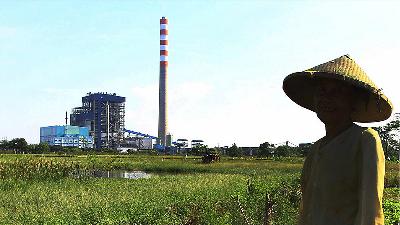
The program to put coal-fired power plants (PLTU) into early retirement is hampered by funding problems. As grants are stuck, the state budget must be disbursed.

Nepotism is the close relative of corruption and dictatorship. The Indonesian Independence Proclamation places nepotism as a threat to independence.
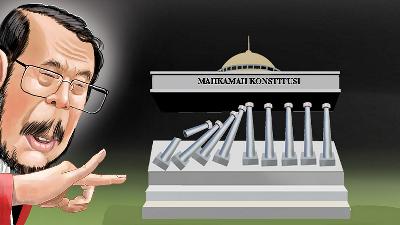
Constitutional Court Chief Justice Anwar Usman is reportedly maneuvering to lower the minimum age limit for presidential and vice-presidential candidates, paving the way for Gibran.
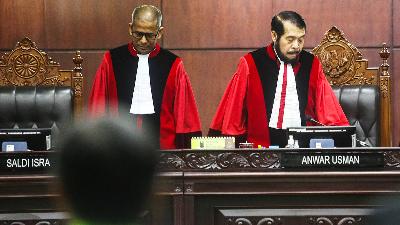
The Constitutional Court reportedly already made a decision in favor of a lawsuit regarding the minimum age requirement for presidential and vice-presidential candidates. The issue is rife with conflicts of interest.

Carbon trading is simply a way to mitigate climate change. The main aims are the energy transition and environmental protection.

The Indonesian Stock Exchange established four carbon trading mechanisms. There were 27 transactions in three schemes in the initial sale.

Presidential candidates’ supporters are creating unfavorable atmosphere in the build-up to the 2024 general elections with them more inclined to speak about rivals’ weaknesses than promoting their champions’ profiles.

The 2024 presidential candidates are competing to garner support from retired generals. This perpetuates the militaristic nature of Indonesian politics.

The plan from the OJK to introduce carbon units as securities could lead to problems. Carbon trading no longer means a reduction in emissions.

The three soldiers who allegedly killed a civilian should be tried in a criminal court. The Military Courts Law needs to be revised.

The OJK regulates carbon exchanges as a securities trading platform. How will the OJK prevent greenwashing in the carbon exchange?

The news in our media is problematic. Why is that?
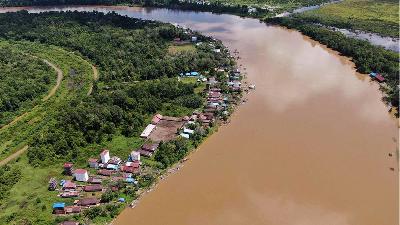
Voluntary carbon trading has stopped since 2021, due to upside down policies.
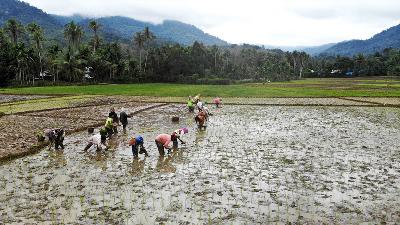
Individuals and companies are already implementing carbon trading in the voluntary market. But no price standard has been set.
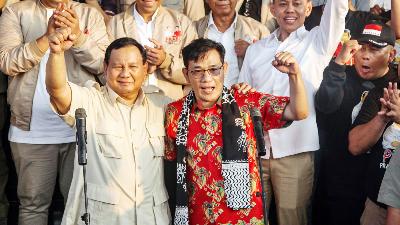
News summary, from the dismissal on Budiman Sudjatmiko to Food Estate.
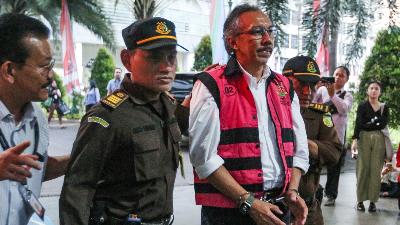
Former Director-General of Mineral and Coal, Ridwan Djamaluddin, is named as suspect in the Mandiodo Block nickel corruption case.
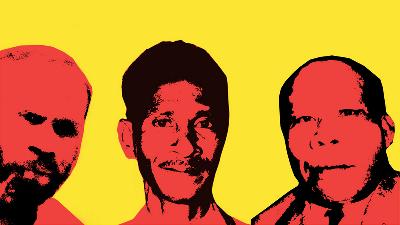
Why did the prominent figures from Papua fail to bring the Papuans to support the Republic of Indonesia?
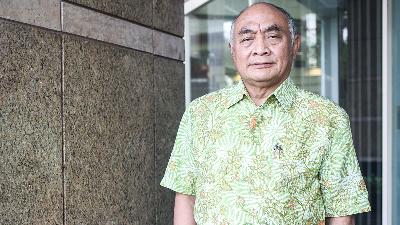
The government faces difficulties accommodating kidney donors and recipients. The need for kidney donors is high, but the supply is very limited.

Artificial Intelligence-generated photos do not record reality, but rather visualize concepts that exist in our minds. The meaning of photos and photography changes.

A man from Lamongan, Edi Santoso, complains about having his photo on a cigarette pack without his permission and Tokopedia’s response on a letter Money Lost on Tokopedia.
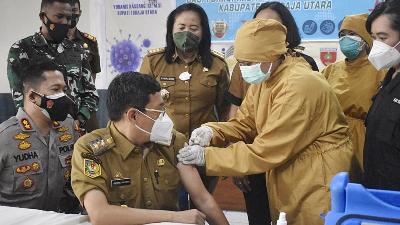
Taking advantage of the lack of regulations on the third Covid-19 vaccination, regional heads receive booster shots. They claim their duties are as demanding as health workers.

There has been talk to replace Azwar Anas, whose ‘indecent’ photos are in circulation, as Saifullah Yusuf’s running mate in East Java’s gubernatorial election. Mayor Risma has turned down the offer.

For the past four months, Jakarta Governor Djarot Saiful Hidayat has written to many people and institutions to revive discussion on land reclamation regulations. None of the institutions, however, have been willing to resume discussions on this ¡®hot potato' topic.

The role played by House of Representatives (DPR) Speaker Setya Novanto in seeking to divvy up shares of Freeport Indonesia is irrefutable. The recording played out at a hearing of the DPR ethics council cleared up any previous confusion on the subject.
Setya, accompanied by oil trader Muhammad Riza Chalid, met with Freeport Indonesia CEO Maroef Sjamsoeddin on June 8 at the Ritz-Carlton Hotel in Jakarta. The speaker was clearly out of place, as he was unauthorized to determine how Freeport's shares should be divested or broker an extension to the company's contract or to determine how Freeport's shares should be divested. Even if his excuse was to seek information on the process of selling the shares, he should have stuck to parliamentary procedures.

Almost every Indonesian knows the picture of Bung Tomo standing in front of a round microphone under a striped umbrella, his hand pointed at the sky, the sleeve of his uniform rolled to his elbow, eyes ablaze. This picture has been reproduced in numerous history textbooks. And it is easy enough to find the picture online: simply Google Bung Tomo, and hundreds of the same picture will appearwith or without Photoshop touches.
The picture is so iconic that every time the November 10 battle is commemorated, the picture is displayed. The photograph is often associated with the Battle of Surabaya itself, although no one seems to know for sure when and where the picture was taken, or who the photographer was. The only accurate information on the photo is that its negative belonged to the IPPHOS (Indonesia Press and Photo Service). "The IPPHOS photo collections rarely had complete photo credits," said Oscar Motuloh, head of the Antara Journalistic Photo Gallery (GFJA), which now owns most of IPPHOS's photographs.

...and the grave
Proves the child ephemeral...
-W.H. Auden
That photo-that shocking photo, the one we can't bear to look at, the one we worry will make sensitive people the world over have nightmares-has quickly become the symbol of our current anxiety. The body of a small three-year-old boy lying facedown on the shore. His tiny, fragile forehead dipped in the waves that washed his body back up on Turkish soil. The blue of his shorts and the red of his t-shirt seem to be calling out to the entire Bodrum Peninsula.

A loud gunshot woke nine youngsters sleeping in a small gazebo in a house on Jalan Teuku Umar in Bangkalan, East Java, on Monday last week. That midnight, Mat Dai sprang up to the sound of someone screaming in pain beyond the fence outside. He ran toward the sickening noise.
Mat Dai then saw Rofi, a friend, carrying Mat Dai's father, Mathur Husairi. The 49-year-old's body was covered in blood. A bullet had struck his waist and severely injured his intestine.

Twenty two writers and photographers were assigned to cover indonesia's 14 most beautiful sites, at times, going through the proverbial hell and high water to reach those destinations.

Tio,s role as a calm and seasoned photographer is extremely attractive. He was able to maintain an emotional stability throughout the film which was not an easy task for the actor.

Photographs must have a strong news value. Photographers must work in line with trends, but always be open to experimental profile photos.

Photography opens access to information for people in remote areas.

Three Indonesian citizens were shot to death by Timor Leste police. Was it a case of border trespassing or an act of past vengeance?

President Yudhoyonos response to the mischievous doctoring of a photo of himself on an Internet journal is praiseworthy. The police should not spend too much time questioning the young blogger.

Adiguna Sutowo is accused of shooting a waiter in the Hilton Hotel’s Fluid Club. Concerns have arisen over the chance of manipulating the sentence.

An exhibition in Jakarta features the works of female photographers. How does the work of women photographers differ from that of their male counterparts?

From the start, Semen Padang strongly opposed being acquired by Semen Gresik, which is now to be sold by the government. It feels it has been sacrificed for the sake of what was a shotgun wedding.

Who shot Supreme Court judge Syafiuddin Kartasasmita? And more important, who ordered his killing? Police investigators assume it was someone he had sentenced in his work. Attention is again on Indonesia's missing bad boy, Tommy Suharto.

A defendant convicted of involvement in a Surabaya drugs case escaped after his verdict was handed down. Caught and shot in the leg, he then confessed to having bribed the district attorney.
Independent journalism needs public support. By subscribing to Tempo, you will contribute to our ongoing efforts to produce accurate, in-depth and reliable information. We believe that you and everyone else can make all the right decisions if you receive correct and complete information. For this reason, since its establishment on March 6, 1971, Tempo has been and will always be committed to hard-hitting investigative journalism. For the public and the Republic.